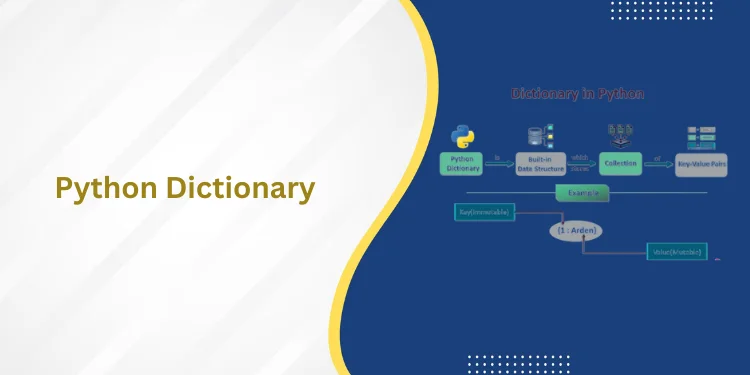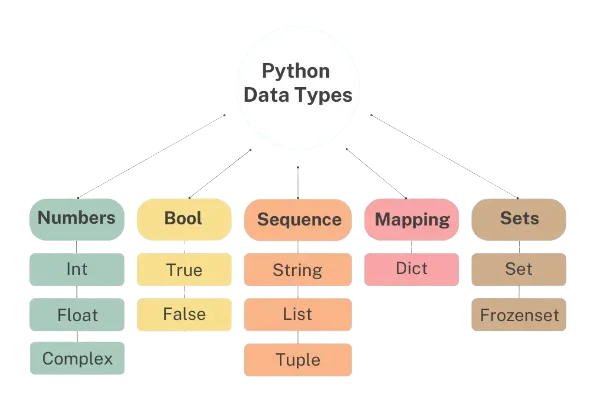Table of Contents
ToggleIntroduction
In the mid-1990s, Java was developed by James Gosling and his team at Sun Microsystems (now part of Oracle Corporation) as a general-purpose programming language. Its purpose was to be platform-independent, secure, and portable, meaning it could create software applications that would run on a variety of hardware and operating systems. This has made Java one of the most widely used programming languages in the world today.
Java’s popularity is largely attributed to its simplicity and hence the uses of java, reliability, and versatility. One of the uses of Java is to develop anything from desktop applications and web-based programs to mobile apps or enterprise systems. Its advantage is one among uses of Java. It can be used across so many platforms is a testament to its success in being an ideal choice for developers all over the world.
One of the major advantages that Java offers over other programming languages is its bytecode format. Through compiling code into bytecode, the language ensures that applications written in Java can be executed on any device, regardless of its operating system, with a compatible java virtual machine (JVM). This one use among other uses of Java makes it easy to develop and deploy software across multiple platforms without having to worry about compatibility issues.
Furthermore, Java stands out for its robust security features and there are different uses of Java as well. It provides built-in protection against viruses, malware, and other security risks, resulting in a popular choice for web-based applications that need to be secure and resilient against attacks.
Together, these key features of platform independence, versatility, and security make Java a preferred choice among developers for developing a multitude of software applications.
Java for Web Development

Java is a popular programming language used in web development to create dynamic websites and web applications. Java-based web applications often use a combination of server-side and client-side technologies to provide users with an engaging and interactive experience.
On the server side, uses of Java help us to write the back-end code that processes requests sent from web browsers and other clients. The code runs on a web server and can access databases, web services, and other resources to generate customized content in response to user input. There are various Java-based frameworks available for developers, such as Spring, Struts, and JavaServer Faces (JSF), all of which can be used to create powerful web applications quickly and easily.
On the client side, uses of Java are required to create interactive web components and applets that run inside a web browser. These applets offer an enhanced user experience by allowing developers to include features such as complex user interfaces, animations, and interactions with other web-based resources. In recent years however, the uses of Java applets in web development has declined as newer technologies like HTML5 and JavaScript have become more popular and hence the uses of Java.
In addition to creating interactive web content, uses of Java also help us for other purposes in web development such as developing web services. Web services allow different applications to exchange data between each other over the internet and Java’s built-in support for XML and SOAP makes it a popular choice for this purpose. As such, many businesses rely on Java-based solutions to enable their applications to communicate with each other over the web.
Overall, Java’s versatility and robustness make it an excellent choice for web development, allowing developers to create powerful, scalable, and secure web applications that can run on a variety of platforms and devices.
Exploring How Java is used to Create Android Apps
Java is widely recognized as one of the most popular programming languages for mobile application development, particularly for Android applications. This is due to the fact that the Android operating system is built on the Java Virtual Machine (JVM), allowing developers to create and execute Java-based applications with ease on Android devices.
When it comes to developing Android apps, Java is integral in writing a range of components from the core business logic that drives the app, to its user interface and other components needed for operation. To aid in this process, Android developers use the Software Development Kit (SDK) as well as various libraries and frameworks such as Android Jetpack, Dagger, and RxJava. These tools are essential for creating comprehensive and reliable Android applications using Java.
Uses of Java help us in Android app development due to its ability to adapt and perform across a diverse range of devices, as well as its platform independence. This allows Java-based Android apps to run seamlessly on smartphones, tablets, and other Android devices with no compatibility issues. In addition, Java’s scalability and robustness make it an ideal choice for developing complex enterprise-level apps that can manage large volumes of data and handle intricate workflows.
The Java development community is another important factor in the success of Java for Android app development. With abundant resources available, such as documentation, tutorials, forums and code libraries, developers can quickly learn the language and develop high quality applications with ease. This makes it a highly sought-after choice for those looking to launch an Android application.
Java for Game Development

There are several uses of Java and this is another one, a versatile programming language that can be used to create games for various platforms such as desktop, mobile and web. It has a number of libraries and frameworks that make game development easier, such as the Java Game Development Framework (JGDF), the Lightweight Java Game Library (LWJGL) and JavaFX.
One of the main benefits of using Java for game development is its portability. The code created with Java can be compiled into bytecode, which can run on any system or device that has a Java Virtual Machine (JVM) installed, without any modifications required for different platforms. This means developers can take advantage of uses of Java to create games that are compatible with multiple operating systems like Windows, macOS, Linux, Android and iOS.
Java is an extremely popular choice for game development, due to its comprehensive Application Programming Interfaces (APIs). These APIs provide an abundance of features, such as graphics, audio, networking and input device support, allowing developers to craft immersive and engaging games. Furthermore, Java’s built-in garbage collection mechanism helps game developers maintain optimum memory usage and performance; a crucial element when creating games.
In addition, its sophisticated multithreading capabilities enable the simultaneous execution of multiple processes within a game; such as rendering graphics and processing user input simultaneously. This further enhances the overall gameplay experience for users.
Overall, Java’s versatility, portability, and robust set of APIs make it an excellent choice for game development, allowing developers to create desktop, mobile, and web-based games that can run on a variety of platforms and devices.
Java for Enterprise Applications

Java is a popular programming language among developers of large-scale enterprise applications. These complex software systems are designed to support the operations of large organizations and must be able to handle a high volume of user interactions, data processing, and transactions. To meet these requirements, enterprise applications must be reliable, secure, and scalable.
Java offers a comprehensive set of features to facilitate the development of these types of applications. One fundamental use among other uses of Java is its robustness, which allows programmers to create code that can handle errors and exceptions efficiently while retaining data integrity and reducing system downtime. This makes Java an ideal choice for enterprises looking for robust solutions that can deal with large volumes of data.
Java’s renowned platform independence enables developers to create enterprise applications that can run seamlessly on any operating system or hardware platform, without the need for tedious and costly modifications. In addition, Java integrates easily with a variety of other technologies and systems such as databases, web services, and messaging systems, allowing enterprise applications to communicate and exchange data more effectively.
Furthermore, Java’s popular enterprise frameworks and libraries like Spring, Hibernate and JavaServer Faces (JSF) not only simplify the process of developing enterprise applications but also equip them with best practices for security, scalability and maintainability. These frameworks provide an array of features and functionalities that help developers take advantage of uses of Java and build powerful enterprise applications quickly and cost-effectively.
Overall, Java’s robustness, portability, and support among other uses of Java are meant for enterprise frameworks and libraries make it an ideal choice for developing large-scale enterprise applications that can meet the complex and demanding requirements of modern organizations.
How Java is Used in Scientific Computing
Java is an established programming language in scientific computing, particularly for data analysis and simulation. Although it may not be as popular as other languages like Python or R, Java has a number of advantages that make it the optimal choice for certain types of scientific computing applications.
The foremost advantage of uses of Java is its object-oriented design, which allows for the development of complex simulations and data models that can be reused and adapted with ease. Furthermore, Java’s platform independence enables scientific computing applications to be executed across multiple hardware platforms and operating systems without needing to make significant modifications. These uses of Java makes Java a great choice for developing applications that need to be compatible with a wide range of devices.
For those looking for a powerful language for scientific computing, Java provides an attractive option. It offers a number of libraries and frameworks that are well-suited for this purpose, such as Apache Commons Math, JScience, and Weka. uses of java, these libraries provide access to a wide range of mathematical functions, algorithms, and tools that can be used for data analysis, visualization, and simulation.
Java is also popular in the field of scientific computing due to its support for parallel processing and multithreading, uses of Java which allows computationally intensive tasks to be completed more quickly. Java’s garbage collection mechanism and memory management capabilities enable developers to build large-scale applications that can process massive amounts of data without crashing or slowing down.
Overall, while it might not be the first choice for every type of scientific computing application, Java can offer certain advantages when it comes to complex data models and simulations or when integration with other Java-based systems or technologies is necessary.
Sixth use among other uses of Java is IoT

Java is rapidly becoming the language of choice for developers working on Internet of Things (IoT) applications, which involve the connection of everyday objects to the internet, such as sensors, appliances, and vehicles. The widespread popularity of Java in this area is largely due to its platform independence; it allows IoT applications to be run on a vast array of devices and operating systems.
The Java ME Embedded platform is specifically designed for embedded devices and microcontrollers, providing an array of tools and technologies that are well-suited for developing IoT applications. Its ability to run on small devices with limited memory and processing power makes Java a perfect fit for IoT applications that require low power consumption and real-time data processing. Furthermore, its scalability also makes it suitable for larger projects with more complex requirements.
Java is a powerful tool for developing IoT applications, enabling developers to create innovative and complex applications that can improve our daily lives. This is thanks to its platform independence and support for embedded devices, as well as its extensive set of libraries and frameworks, such as Spring. Java’s support for RESTful web services and messaging protocols like MQTT and AMQP also makes it easier to develop IoT applications that can communicate with other devices and systems.
Java also provides support for edge computing, allowing IoT devices to process data locally rather than relying on a centralized server. This not only helps reduce latency, but also improves the performance of IoT applications that require real-time data processing. By combining these features together, Java offers developers an effective way to quickly build and deploy scalable and secure IoT applications.
Read: data analytics courses in india
Java for Cloud Computing
Java is a versatile and robust programming language that has become an essential part of cloud computing and distributed systems. This is due to its platform independence, scalability, and robustness which make it the ideal choice for developing and deploying applications in the cloud. Java’s versatility is further demonstrated through its support of the Java Virtual Machine (JVM), allowing applications to be run across various hardware platforms and operating systems. Additionally, Java’s multithreading capabilities combined with parallel processing capabilities allow for efficient response time to handle large numbers of concurrent users and requests, making it even more suitable for cloud-based applications.
Developers rely on Java for creating cloud-based applications due to its vast library of popular frameworks and libraries including the likes of Spring, Hibernate, and Apache Stratos. These frameworks make it easier to implement best practices for security, fault tolerance, and load balancing in cloud-based applications. Furthermore, Java has extensive support for microservices. uses of java, Microservices are small, modular services that can be independently deployed and updated as needed; they are well-suited for cloud-based applications since they provide greater scalability and flexibility. By relying on a combination of frameworks and microservices, developers can create cloud-based applications that are reliable, secure and highly scalable.
Java is an incredibly powerful and versatile programming language, making it an ideal choice for developing cloud-based applications and distributed systems. Its platform independence allows developers to create applications that can be deployed on any compatible operating systems, while its support for multithreading and parallel processing enable organizations to proce
ss data more efficiently. uses of java, Additionally, the comprehensive set of frameworks and libraries available in Java make it possible for developers to quickly build solutions that meet the complex and demanding needs of modern businesses.
Java for Machine Learning
Java is becoming increasingly important in the world of machine learning and artificial intelligence (AI), as it enables developers to create sophisticated algorithms and models that can learn from data, make decisions, and draw predictions. This is due to Java’s strong platform independence, object-oriented programming paradigm, and extensive set of libraries and frameworks.
These libraries and frameworks allow developers to create a variety of powerful machine learning models, such as neural networks, decision trees, support vector machines, and more. Popular Java libraries for AI include Weka, Deeplearning4j, Apache Spark, and many others – each offering its own unique advantages in terms of features, scalability, efficiency, and more.
Java’s support for parallel processing and distributed computing also makes it well-suited for developing machine learning and AI applications that require high performance and scalability. uses of java, Java can be used to build distributed systems that can process large amounts of data in parallel, allowing machine learning models to be trained and deployed more quickly and efficiently.
Java’s support for data analysis and visualization also makes it easier to work with large and complex datasets, which are common in machine learning and AI applications. Java provides a number of libraries for working with data, uses of java, such as Apache Commons Math, which provides a range of mathematical functions and algorithms for working with data.
Overall, Java’s platform independence, object-oriented programming paradigm, and extensive set of libraries and frameworks make it an ideal choice for developing machine learning and AI applications, allowing developers to build powerful and efficient models that can help to solve complex problems in a wide range of domains.
Click here to know more about: data science colleges in mumbai
Java Career Opportunities
Java is one of the most widely used and sought-after programming languages in the world, making it increasingly popular among jobseekers. With its versatile nature and broad range of applications, Java developers can find employment opportunities in a variety of industries, including finance, healthcare, e-commerce, gaming, and more.
The most common job roles for skilled Java developers include software engineer, software developer, full-stack developer, back-end developer, and web developer. However, those who wish to specialize further can pursue additional career options such as mobile development, cloud computing or machine learning. Such specialized careers enable java developers to stay ahead of the curve by taking advantage of emerging technologies to create innovative solutions for their employers.
In addition to a variety of job opportunities, Java developers can also benefit from competitive salaries and an array of benefits, such as flexible working hours, remote work options, and the possibility of professional advancement. uses of java, Java is a versatile language and hence it offers developers the chance to work on a wide spectrum of projects and applications. This can range from small-scale web applications to large-scale enterprise systems.
The job prospects for Java developers are strong and continuously increasing. As more industries are embracing Java for their applications and systems, the need for experts in this field is growing at a steady rate – thus providing ample career opportunities with the potential for long-term career growth.
Conclusion
In conclusion, Java is an incredibly versatile programming language that has been adopted by developers and organizations across a wide range of domains. From web development and mobile app development to game development, enterprise applications, scientific computing, cloud computing, and machine learning, Java has found a place in nearly all aspects of the software development world.
Its popularity among developers can be attributed to several factors. uses of java,One of the most appealing aspects of Java is its platform independence – it can run on any operating system with a compatible Java Virtual Machine (JVM). Additionally, its use of an object-oriented programming paradigm makes it easier for developers to create robust applications quickly and reliably. Finally, its extensive set of libraries and frameworks provide developers with an extensive range of tools for tackling complex tasks.
Due to these features, Java is a great choice for building large-scale applications that require high performance and reliability.
The wide range of job opportunities available for Java developers is a testament to the language’s popularity and versatility. Java developers can find employment in a variety of industries, including finance, healthcare, e-commerce, and gaming, among others. Additionally, Java developers can specialize in specific areas of Java development, such as mobile development or cloud computing, to further enhance their career prospects.
In conclusion, Java is a powerful and versatile programming language that has cemented its place as one of the most widely used programming languages in the world. Its numerous applications and career opportunities make it an excellent choice for both beginner and experienced developers looking to build their skills and advance their careers in the tech industry.
Frequently Asked Questions
What makes Java a popular choice for web development? What is something which is different in the uses of Java?
Java’s popularity in web development is due to variety of uses of Java and it’s platform independence, which allows Java applications to run on different operating systems and devices, as well as its extensive libraries and frameworks for web development, such as Spring, Hibernate, and Struts.
Are there any uses of Java for mobile app development?
Yes, there is a use among other uses of Java i.e. mobile app development, particularly for developing Android apps. The main use among other uses of Java is that it is primary programming language used for Android app development, as it provides a wide range of features and functionality, such as object-oriented programming, multithreading, and exception handling.
What are the uses of Java in enterprise applications?
Java is a popular choice for enterprise application development due to its scalability, reliability, and security features. Java’s extensive libraries and frameworks for enterprise development, such as Java EE, Spring, and Hibernate, provide a range of features and functionality for building large-scale, complex systems.
What are some examples of scientific computing applications built with Java and that satisfies the uses of Java?
Uses of Java to help in a variety of scientific computing applications, such as data analysis and simulation. Examples of scientific computing applications built with Java include Apache Spark, Weka, and jHepWork.
Is Java a good choice for machine learning and AI development and how does this relate with other uses of Java?
Yes, one use among other uses of Java is for machine learning and AI development due to its object-oriented programming paradigm, platform independence, and extensive libraries and frameworks, such as Weka and Deeplearning4j. Java’s support for parallel processing and distributed computing also makes it well-suited for developing machine learning models.













